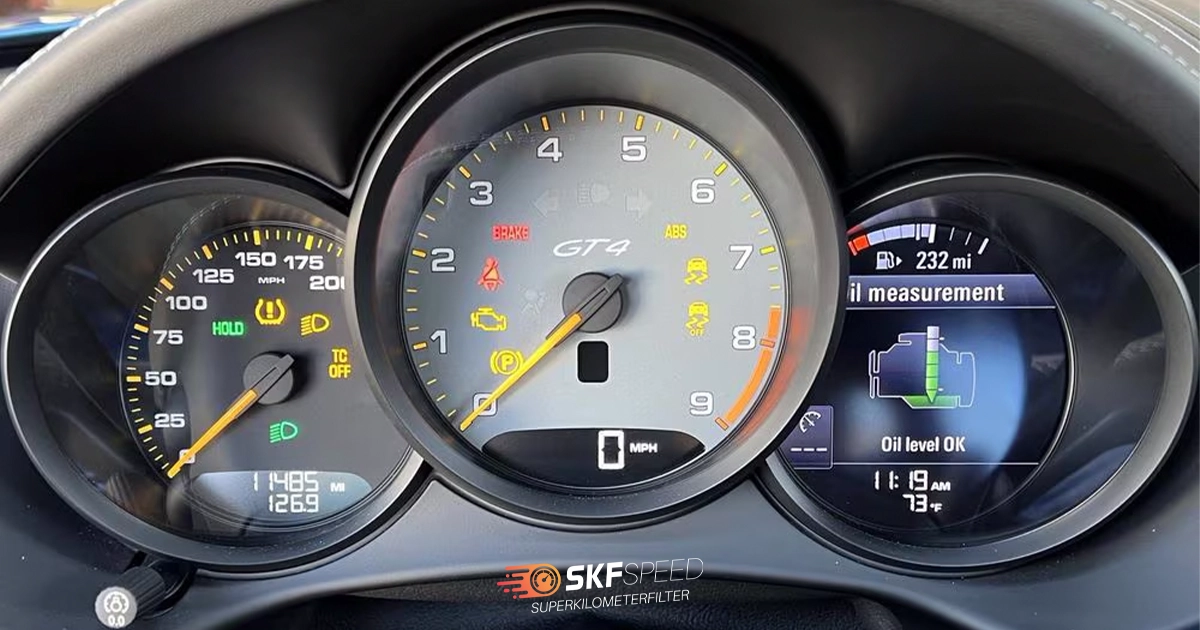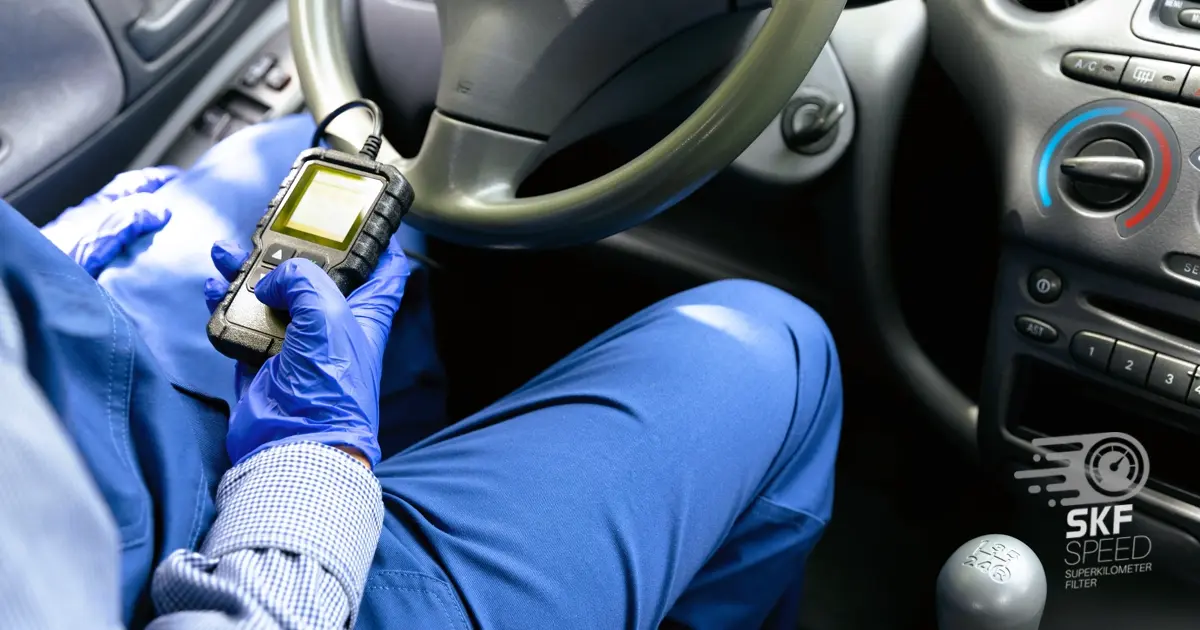
Exempt mileage title indicates that mileage data is unavailable for specific reasons, which means that you purchase it at a lower price and enjoy other benefits while stepping into unfamiliar territory. Since the reasons for this title status vary, each case is individual. However, it is unarguable that mileage data plays a crucial role for all potential vehicle buyers; hence, verifying a genuine mileage is always the number one priority.
In the US, federal and state laws require car owners to disclose their current odometer readings when selling their cars. The law aims to increase buyers’ trust and protect them from potential odometer fraud. This is where exceptions appear. It’s not mandatory for all vehicles. Additionally, it is beneficial for buyers if they diligently research the automobile before purchasing.
In the blog below, we will define federal and state laws, explain when this status is assigned, discuss its impact on resale value, identify situations that may lead to buyer untrustworthiness, and outline circumstances that may indicate odometer fraud.
Exempt mileage refers to the vehicle title, which indicates that it reaches its mechanical limits and the odometer no longer displays genuine data. The concept comes from Federal Odometer Act (FOA), enacted in 1972, as it aimed to protect consumers from fraud. Department of Motor Vehicles (DMV) requires sellers to disclose odometer readings except for the owners of the vehicles, who are exempt from disclosing. Firstly, it was 10-year-old or older vehicles that were exempt, however , since January 1, 2021, NHTSA slightly changed the rule, vehicles became exempt from disclosure after 20 years of their life, and this only applies to models produced in 2011 or newer. In other words, today, 2010 or older models are automatically free from disclosing, and 2011 or newer models become exempt, each after 20 years. Let’s illustrate in examples:
| Model year | Will become exempt and remain for a lifetime |
|---|---|
| 2011 | 2031 |
| 2012 | 2032 |
| 2013 | 2033 |
| 2014 | 2034 |
So, the pattern continues the same for all consecutive years. Most US states follow the federal rule and they enforce the law accordingly. States as Texas, Florida, California, Colorado, Missouri, and Alabama assign an exempt mileage status to the automobiles that are entitled to this status according to federal law. However, there is a slight difference in the enforcement of this rule. For example, some of them have stricter rules, request disclosures anyway, implement their own electronic odometer disclosure systems, and have very strict penalties for odometer fraud. In short, each state has additional requirements that don’t exist in Federal laws.
The title can be assigned to the automobile in several situations. Some of them may become reasons all at once, or each one individually. Here they are:
No, it is not always like this. Buying a car with exempt mileage status can be beneficial at some level, but it also includes potential risks. It depends on the buyer’s goal, budget and what they expect from the purchase. For some individuals, the goal is to purchase a classic car or a buyer is a collector; in this scenario, it’s quite acceptable and not surprising if odometer data is not available. Moreover, it would be strange if it were the other way. To be more precise, let’s write down the pros and cons of purchasing such a vehicle:
Buyers will trust you if you share information honestly and particularly follow these tips:
So, when you don’t offer clear mileage data, you can compensate for it by providing and offering everything you can to build and secure trust. In this case, the buyer will be eager to make a purchase confidently.
The short answer is – Yes. Vehicle resale value is highly affected. We found some picks for comparison on KBB (an American vehicle valuation and automotive research company) , and we selected the same maker and model with a difference in years and miles. The comparison displays several trends:
Those are particular numbers and estimated prices; We consider mileage and years factors only to illustrate gaps. Surely, the automobile is estimated to have a lot of components, but it is unarguable that mileage data is crucial. The absence of this data can be an alert of potential odometer fraud.
Odometer fraud is not only a hidden danger behind exempt mileage, but it is also a common form of consumer fraud that costs billions of dollars annually. According to the definition of NHTSA, it is the disconnection, resetting, or alteration of a vehicle’s odometer with the intent to change the number of miles indicated. It is often called “busting miles” or “clocking”. This illegal practice is damaging for consumers as it’s quite hard to reveal when purchasing the car. Protecting yourself from odometer fraud begins with detecting it in a timely manner, when you are evaluating the condition of the automobile before making a purchase. Requesting the car title, requesting maintenance and service records, assessing the condition of components, examining the tires, and requesting a vehicle history report – all of these are essential steps that help reveal potential odometer tampering.
Purchasing a car with exempt mileage means you have a lack of mileage information. Hence, you don’t have one of the major criteria that would help to plan maintenance and pre-determine upcoming mechanical issues. In this situation, the best solution is to test and detect possible issues yourself or take your car to the mechanic routinely. Visiting mechanic often is quite tiring and time consuming, instead of this, you can pick advance testing tools, that is safe and reliable to use. One of the best quality testing devices is the Mileage Blocker.
A mileage blocker is a tool that can unconditionally halt the mileage recording process of all control units. If you want to test the performance of your car in a controlled environment, you can purchase the device exclusively for you maker and model and enjoy the benefits of the advanced tool:
You should be extremely cautious with the usage; the manufacturer designed the device for legal purposes. This means it is not allowed to use the device on public roads or to deceive potential buyers.
You can buy the device directly from Super Kilometer Website. If you need additional assistance, the support team and customer center are ready to answer all your questions.
Exempt mileage car purchasing can be beneficial and risky at the same time. Therefore, you should think twice before making a final decision. Consider your priorities, necessities, and budget. While those types of automobiles work best for one individual, they can be a nuisance for others. So, decide which type you are first, then make a purchase.







Here you will find all the details about our company
Here you will find shipping and return related information
Here you will find information on all technical questions
Here you will find helpful information about installation